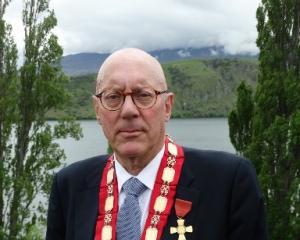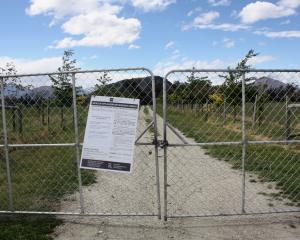Environment Court Judge Jon Jackson has criticised the Queenstown Lakes District Council as "obstinate", "rather unhelpful" and "time wasting" over a case which has taken more than 10 years to resolve.
In a written decision, Judge Jackson ordered the council to pay $53,000 costs to Remarkables Park Ltd (RPL) over proceedings begun in 1998, saying the council was responsible for "some of the worst delays" he had ever seen.
The proceedings began when Remarkables Park objected to the manner in which financial contributions would be imposed on developers under the council's proposed district plan.
After "extensive negotiations" between 1999 and 2009, the council and the company avoided a substantive hearing by eventually reaching a settlement.
However, in that time more than seven pre-hearing conferences were held, eight more were adjourned, and four procedural decisions were given before the final decision setting out the agreement between the two parties was issued on November 12 last year.
The decision also directed the council to make its district plan fully operative.
Remarkables Park director Alastair Porter said the company's initial challenge to the Environment Court related to "challenging the fairness" of the proposed financial contributions regime.
He told the Otago Daily Times that while the company was satisfied by the amount of money awarded, it was "by no means" the total cost incurred by the company - which he estimated to be about $500,000.
Queenstown Lakes Mayor Clive Geddes said the council would not be making any comment on the criticisms until it had reviewed the decision.
Judge Jackson said the context in which the 1998 challenge was lodged was important to keep in mind: 201 Queenstown "references" were lodged in the Environment Court that year.
It was a "challenging caseload" for the court and council and "to some extent" [both] had let financial contributions provisions "take something of a back seat" to more significant matters - such as landscape-related references - until the end of 2003.
However, the council had "second thoughts at various points of the proceedings" which led to delays.
Despite the court giving a "clear indication" of its view on certain technical and legal matters, the council had "persisted" with its course, which resulted in more hearing time and greater cost for the company.
The court also asked the council to consider alternative approaches but found that it wanted to "hedge its bets".
The council had "wasted the court and RPL's time" in preparing for a substantive hearing which never eventuated, and having four procedural hearings in the interim.
"All of this amounts to poor management of the council's case which unnecessarily lengthened proceedings," he said.
"The council has conducted its case in an obstinate and rather unhelpful manner."
It had chosen to go against court findings; ignoring suggested alternatives and remarks from the court "as to its unease with the approach" the council was taking.
Judge Jackson also referred to a media report, quoting Mr Geddes saying he did not think anyone thought it was "acceptable to have delays of potentially 12 months or more of having their appeals heard ..."
"In fact, the time taken for most appeals in this district is about the average for the whole country, and that notwithstanding my relative [past] lenience on extending timetables for service of evidence," Judge Jackson said.
"But the 10 years it has taken to resolve this proceeding shows some of the worst delays I have ever seen - and it is largely the Queenstown Lakes District Council which has been the cause of the delays."
Judge Jackson's decision was dated March 15.











